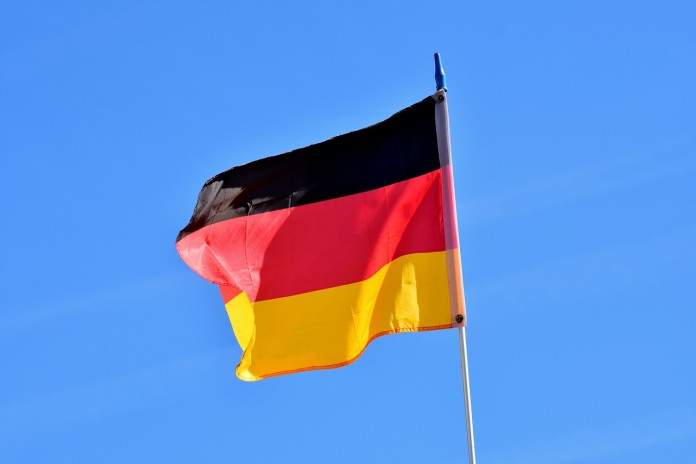Study in Germany? People usually think about engineering or medicine. Only few think about social studies, forgetting that Marx, Nietzsche, Habermas, and many other social scientists came from Germany. Our contributor, Shavieram, shares her experience studying International Development Management in Germany.
Germany is known for its preciseness and accuracy. These descriptions are mostly relatable to the country’s major industry in automotive, and plenty of other types of machinery that we use daily, or even heavy-duty ones that we’ve never heard of. Don’t get me wrong, those adjectives are not only useful to describe products of Germany, but also its people. So does the education system. German education in Engineering is one of the best in the world. People all over the world come to Germany to study Engineering. Of course, one of Indonesia’s best was educated there and spent most of his adult life in Germany. Habibie was a German Aircraft Design and Structure Engineering graduate and he still is one of the best in this field. However, not many of us realize that Germany is not only famous for its engineering degree, but also social sciences.

Marx, Nietzsche, Habermas, are some of the German most famous social scientists in the world. They have produced social theories that we surely have heard before or even we have quoted them for our papers in college. They have also influenced further social science education in various Universities in Germany. Humboldt University in Berlin, Freie University Berlin, Bonn University, and Hamburg University are amongst the top ten universities in Germany with exceptional quality of social science programmes.
“If that’s true, then why we have never heard of it before?” I will have to admit that most of the study programmes in Germany are in German. This has been the case until the 1990s when Germany reunited and opened its doors to the world. Since then, international programmes in German have been expanded all over this country. International programmes in German universities are exclusively for Master’s degree. And the good news is, it’s (almost) free! Students only need to pay 200-300 euros per semester for a semester ticket covering all public transportation in your university’s region. You could find out more about international programmes in Germany at DAAD’s website.
I consider myself lucky enough to be able to received DAAD scholarship in an international study programme for Development Management in Ruhr University Bochum because DAAD promotes the element of exchange in every aspect. Besides from monthly stipend, DAAD scholarship also offers a lot of opportunities such as intensive German course for 1-6 months, depending on the extent of German needed in the courses. DAAD also encourages students to attend yearly DAAD meeting that gathers all of DAAD scholarship holders in Germany. Here, I met a lot of people with interesting backgrounds gather in one place. Additionally, in my study programme, there is a 3-month compulsory internship programme in German organization. I was lucky enough to be accepted in KfW Development Bank, a German-owned development bank working to finance high-risk developmental project all over the world. As I worked in Climate and Natural Resources Department, I learned a lot about green finance scheme for Asia and I was responsible to support coral triangle project in Indonesia, which finance conservation of corals and seabed in parts of Indonesia.

The most impressive experience that I obtained during my study is the all-expenses covered summer school in Cape Town, South Africa. For one month, I studied at the University of Western Cape especially in Social Policy in South Africa and data collection. Not only I learned a lot about South Africa, but I also discovered the beauty of South Africa beyond my imagination. South Africa truly broke the stereotype of poor and starving Africa. Even though the inequality and crime rate is still high, South Africa is moving to a more developed and prospering country.
However, my programme study has also its weaknesses. Ruhr University Bochum is located in Bochum, about 10 minutes train-ride from Dortmund. It is not the most beautiful city in Germany because it was mainly an industrial city post World War II. Nowadays, the city has become more environmentally friendly, but the city itself remained unattractive. Even though people kept asking me “Where is Bochum?”, it doesn’t mean the quality of the university is somehow less than more famous universities in Germany. Because most of the Universities in Germany are public ones, their quality is comparable to one another.

One of the negative points studying in english-taught programme in Germany is that the lecturers are not native English speakers. When delivering a lecture sometimes I could see that they are not comfortable using English, because it is not their native language. The rigidness of Germans I could also feel from the class. Social science programmes should be dynamic because it promotes discourse among students, and it should be encouraged. But when the students expressed their opinions which differ from the lecturers, it was not welcomed. This was something that I and my friends mutually agreed as the weakness of studying in this programme.
My overall experience studying an international social science programme in Germany is brilliant. Of course, there are some drawbacks that I experienced, but those are not nullified the extensive experience that I gained in this programme. It even enriched my understanding of the German culture and it was one of the objectives of studying abroad: to broaden our world.








